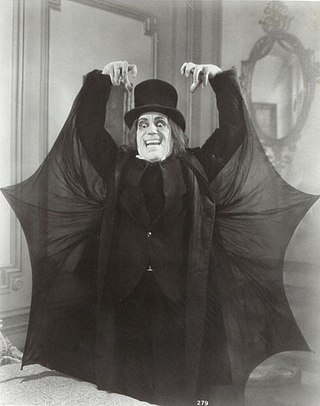
A lost film is a feature or short film that no longer exists in any studio archive, private collection or public archive.

(Sir) Charlie Chaplin (KBE) (1889–1977) was an English-born internationally renowned Academy Award-winning actor, comedian, filmmaker and composer whose was best known for his career in Hollywood motion pictures from 1914 until 1952, he subsequently appeared in two films in his native England. During his early years in the era of silent film, he rose to prominence as a worldwide cinematic idol renowned for his tramp persona. In the 1910s and 1920s, he was considered the most famous person on the planet.
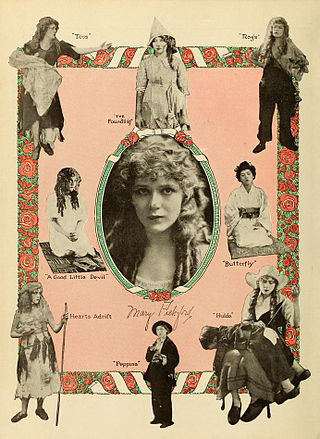
Mary Pickford (1892–1979) was a Canadian-American motion picture actress, producer, and writer. During the silent film era she became one of the first great celebrities of the cinema and a popular icon known to the public as "America's Sweetheart".

Parisian Nights is a 1925 American silent drama film directed by Alfred Santell and featuring Boris Karloff.

The Golden Web is a lost 1926 American silent mystery film directed by Walter Lang and starring Lillian Rich, Huntley Gordon and Lawford Davidson. The cast also features Boris Karloff before he established himself as a horror star. It is based on the 1910 novel The Golden Web by the British writer E. Phillips Oppenheim. A previous British film adaptation of the novel was produced in 1920.

Let It Rain is a lost 1927 American silent comedy film produced by and starring Douglas MacLean, directed by Edward F. Cline, and featuring Boris Karloff in a minor role as a U.S. mail robber. Paramount Pictures distributed the film. The film is now lost.
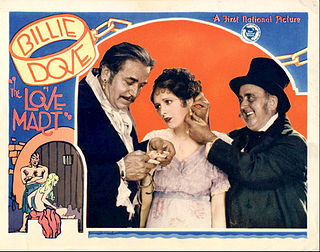
The Love Mart is a 1927 American silent drama film directed by George Fitzmaurice starring Billie Dove, Gilbert Roland and Noah Beery, and featuring Boris Karloff. The film is lost.

Here Comes the Bride is a lost 1919 American silent comedy film produced by Famous Players–Lasky and released by Paramount Pictures. This film is based on the 1917 Broadway play Here Comes the Bride by Max Marcin and Roy Atwell. The film was directed by John S. Robertson and stars John Barrymore.

Nursing a Viper is a 1909 American silent short film by pioneer director D. W. Griffith. A paper print of the film survives in the Library of Congress.

Hogan's Alley is a 1925 American silent comedy film produced and distributed by Warner Bros. It was an early directing assignment for Roy Del Ruth and starred Monte Blue, Patsy Ruth Miller, and Ben Turpin. This film is a precursor to the silent film One Round Hogan, a later Monte Blue boxing vehicle.

Unseeing Eyes is a lost 1923 American silent north country drama film produced by William Randolph Hearst and distributed by Goldwyn Pictures. Edward H. Griffith directed Lionel Barrymore, Seena Owen, Louis Wolheim, and Gustav von Seyffertitz in the action packed drama. The movie was filmed in part at the Gray Rocks Resort in the Laurentian Mountains of Quebec, Canada.

A Wise Fool is a 1921 American silent drama film produced by Famous Players–Lasky and released by Paramount Pictures. This film is based on the novel The Money Master by Sir Gilbert Parker and was directed by George Melford. James Kirkwood is the star of the film. A copy is held at the Library of Congress.

Prisoners of Love is a lost 1921 American silent drama film produced by and starring Betty Compson and distributed by Goldwyn Pictures. It was directed by Arthur Rosson and was Compson's first film after a year's hiatus from film making.
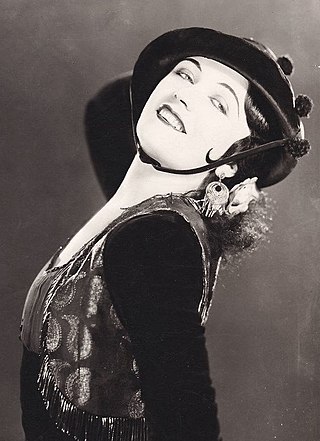
The Charmer is a 1925 American silent drama film produced by Famous Players–Lasky and distributed by Paramount. It was directed by Sidney Olcott with Pola Negri in the leading role.
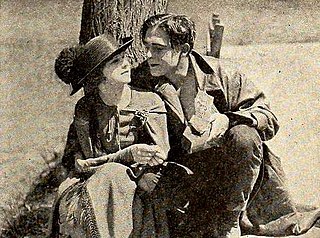
The Lottery Man is a lost 1919 American silent comedy film directed by James Cruze and starring Wallace Reid and Wanda Hawley. It is based on a 1909 Broadway play, The Lottery Man, by Rida Johnson Young. In the play Cyril Scott and Janet Beecher played the roles that Reid and Hawley play in the film. Famous Players–Lasky produced and Paramount Pictures distributed.
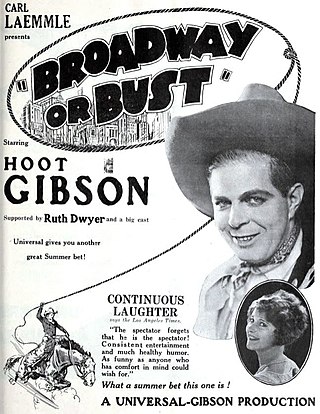
Broadway or Bust is a 1924 American silent Western comedy film directed by Edward Sedgwick and starring Hoot Gibson. It was produced and distributed by Universal Pictures.

The Undercurrent was a 1919 American silent directed by Wilfrid North, produced by Guy Empey, distributed by Select Pictures. It is based on a story by Arthur Guy Empey and though fictional, is considered a sequel to Over the Top which was a 1918 movie loosely based on his autobiographical book of the same name about his own experiences in the British Army in World War I. The New York City premier was held at the Capitol Theatre and was attended by General John J. Pershing who was in New York City for the International Trade Conference of 1919.
Not My Sister is a lost 1916 silent film drama directed by Charles Giblyn and starring Bessie Barriscale and William Desmond. It was produced by Thomas H. Ince for Kay-Bee Pictures and distributed by Triangle Film Corporation in Culver City, California.
The Broken Violin is an American silent film directed by Oscar Micheaux, released in 1928.

The Red Sword is a 1929 American silent adventure film directed by Robert G. Vignola and starring William Collier Jr., Marian Nixon and Carmel Myers. The film was produced and distributed by FBO Pictures, shortly before it was taken over by RKO Pictures. It was released in Britain by Ideal Films under the alternative title Three Days to Live.



















